In South Africa, right-wing white populists do politics but not the elections
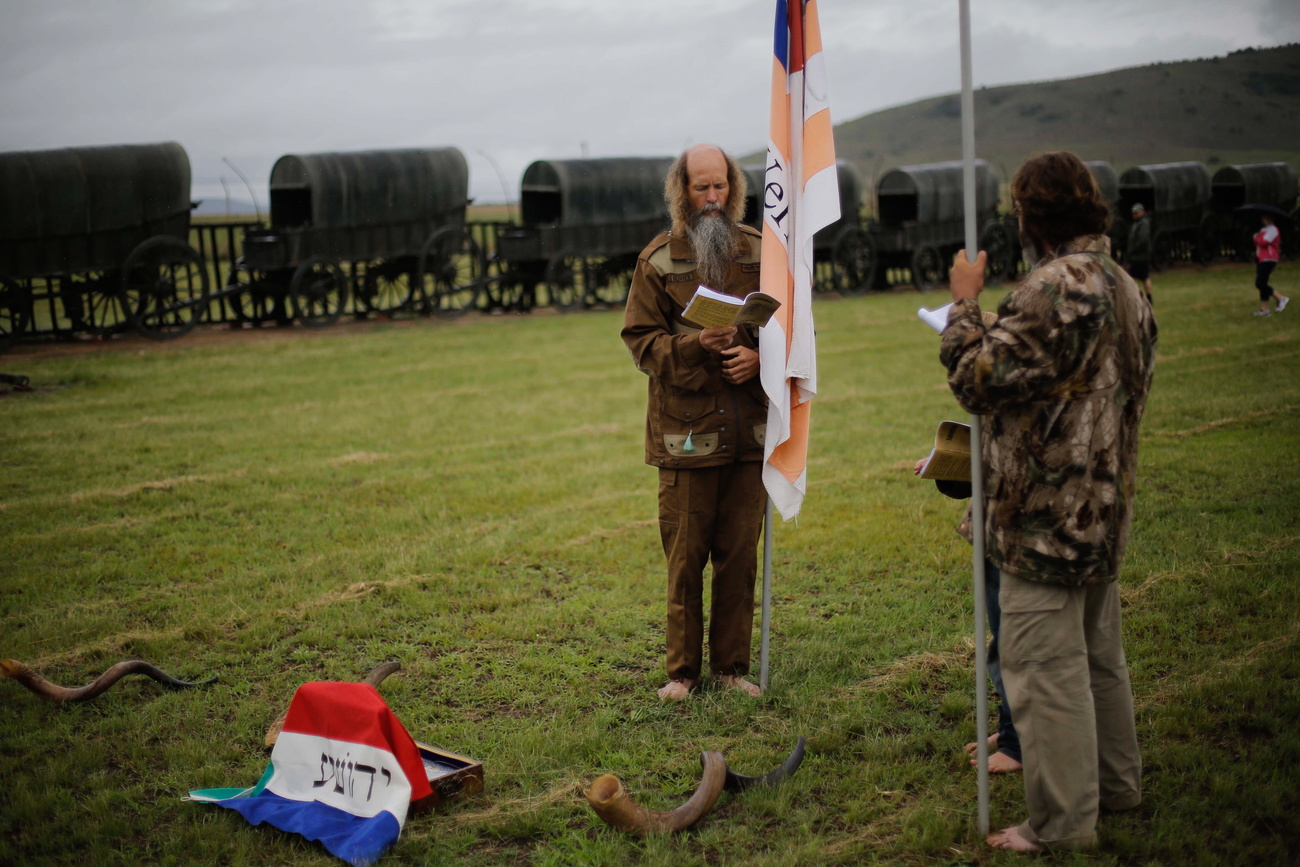
South Africa votes in a national election on May 29 in what is widely expected to be a landmark moment for the country’s post-apartheid democracy. SWI swissinfo.ch talks to historian Danelle van Zyl-Hermann about right-wing populism and South Africa's Solidarity Movement.
Check out our selection of newsletters. Subscribe here.
“Make Afrikaners Great Again!” This is the title Danelle van Zyl-Hermann gave to one of her recent journal articles. The South African historian, who works at the University of Basel, has looked at the Solidarity Movement, among other things, and analysed what right-wing populism can look like from a minority perspective.
On May 29, South African voters will decide whether the African National Congress, the ANC, will lose its majority for the first time since the first free elections in 1994. The Solidarity Movement plays no role in the elections in a country with 62 million inhabitants.
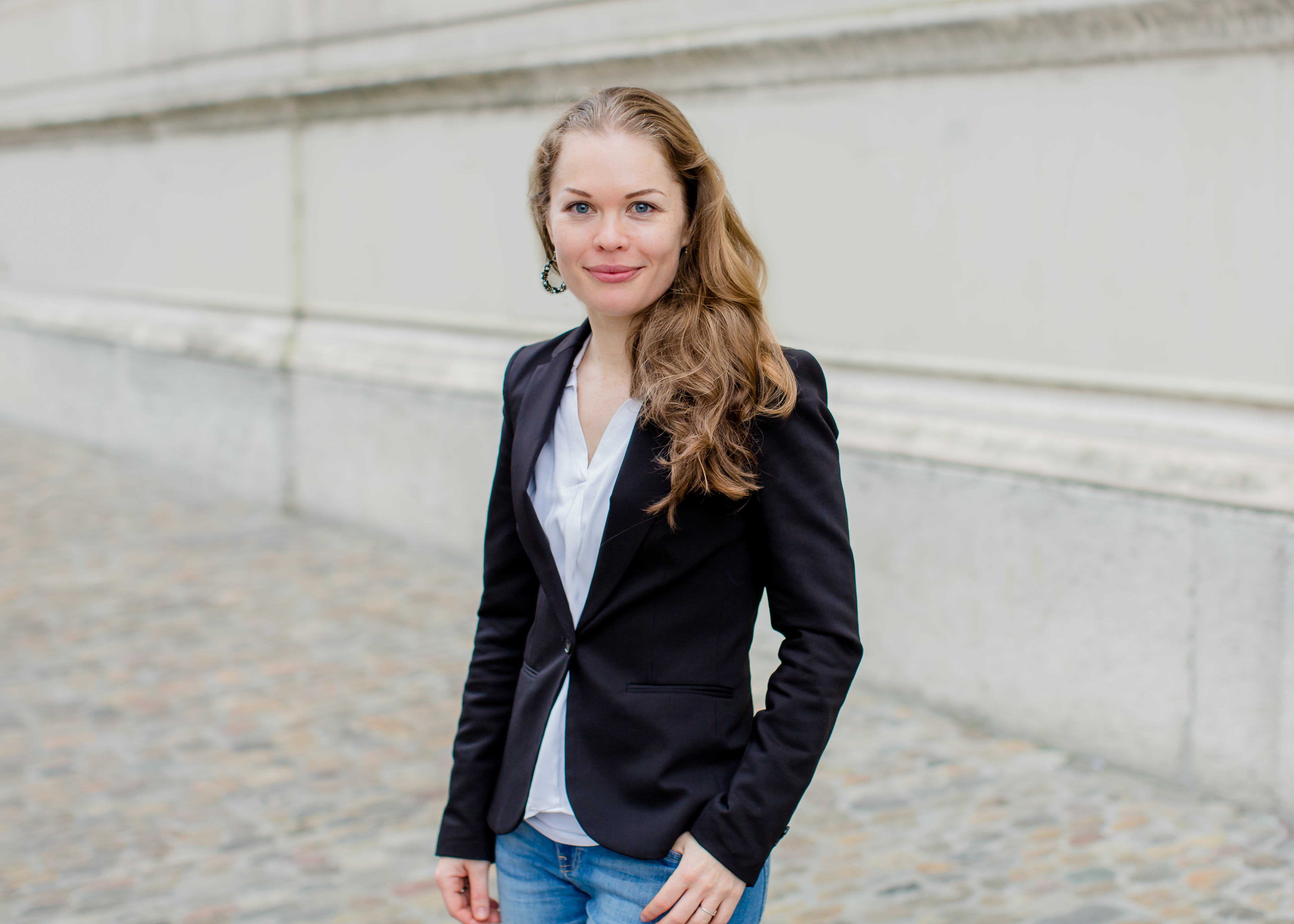
This is because these right-wing populists never stand in elections – unlike the Rassemblement National in France or the AfD (Alternative für Deutschland) in Germany. Nevertheless, the Solidarity Movement has managed to gain attention and influence with its “us against them” rhetoric and its own institutions, which create a kind of state within the state. The movement even has its own university and a law enforcement agency – without a mandate.
In this interview, Danelle van Zyl-Hermann explains how the movement works and how it networks internationally. Van Zyl-Hermann also explains what happens on election day and afterwards.
SWI swissinfo.ch: What made you decide to study the white working class in South Africa?
Danelle van Zyl-Hermann: I am a South African, grew up there and spent most of my life living there – so my personal experience of the country’s struggles and debates is one reason. Academically, I saw a real gap in the way that South Africa’s transition from a discriminatory apartheid state to a free democracy was narrated.
Is it really true that all white people shared the same experience and all black people another? I wanted to show that white society, like black society, is not homogenous – that people who seem to belong to the same “group” can have very different identities, experiences and political ideals.
SWI: You studied the Solidarity Movement, a right-wing populist movement in South Africa. Is this the only relevant populist movement in South Africa at the moment?
DvZH: There’s a wide spectrum of populism in South Africa, as there is everywhere – both right- to left-wing groups. What most people would consider the most relevant populist movement in South Africa is the radical left-wing party, the Economic Freedom Fighters, who in 2019 won around 10% of the national vote.
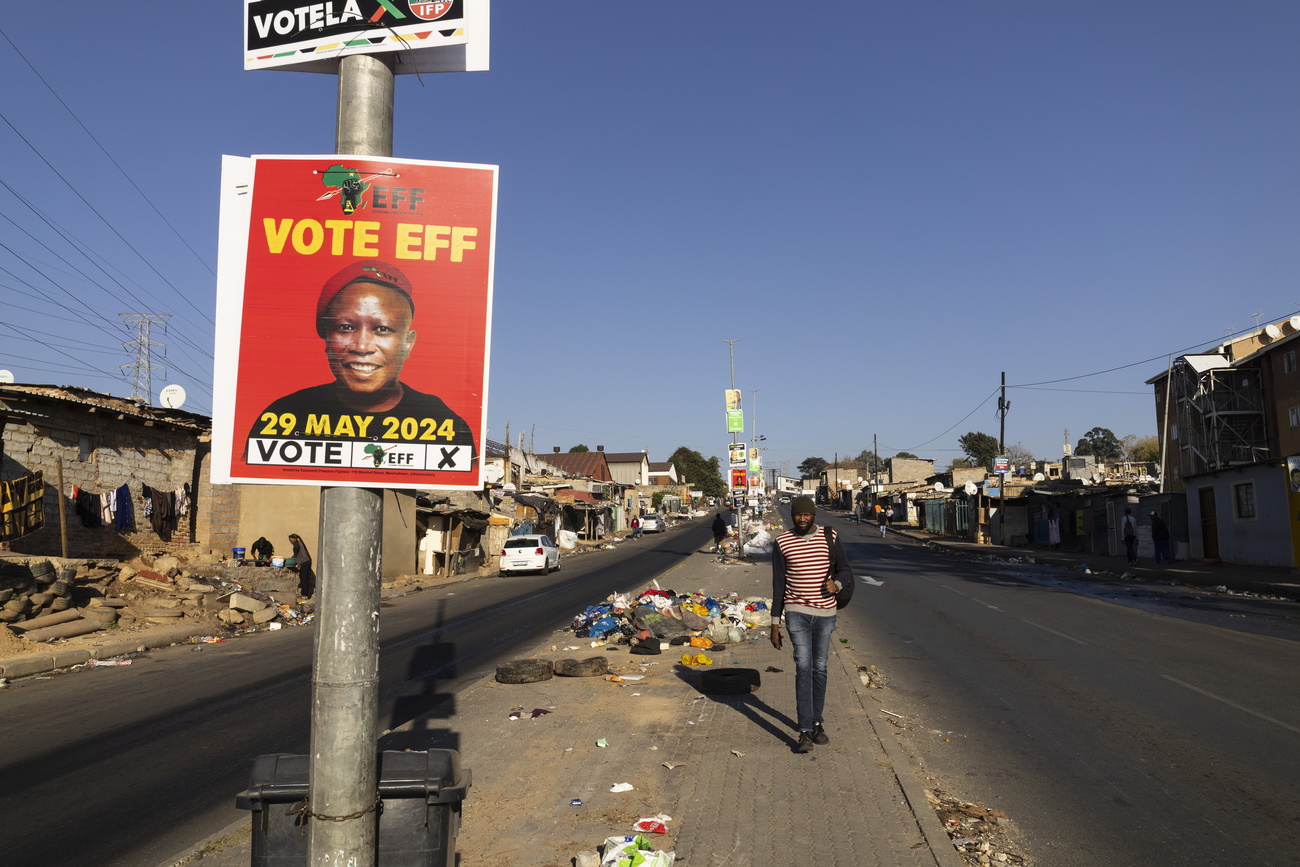
But the Solidarity Movement is not a party. It is a conglomerate of connected organisations which together claim to represent the interests of minority population groups, particularly white Afrikaans-speakers.
The way it operates blurs the lines between labour, politics, charity, business and civil rights. Their campaigns are everywhere in South Africa and they are incredibly strategic and well organised.
A number of people I interviewed told me: ‘I wish they would start a party, so we can vote for them’. But Solidarity will never do this. Their actual support in voter percentages would be so small that they would have very little power in parliament.
Their current extra-parliamentary strategy is the best option for them. Because they never run in a political campaign, they can claim to have a lot of support but never actually have to show it at the polls. In fact, they have this saying, ‘Don’t count us – weigh us!’
The thing is that the Movement claims to speak for all Afrikaners. They claim all Afrikaners – and by extension, all whites and all minorities – in South Africa are discriminated against in a state ruled by the black majority. This is definitely not the case, and there are often reactions and mobilisations by white Afrikaans-speakers who reject the Solidarity Movement’s politics.
SWI: Who are their supporters?
DvZH: The majority of their members are white Afrikaans-speakers – those who call themselves “Afrikaners”, and who historically benefitted from apartheid – who feel alienated culturally and disconnected politically in majority-ruled South Africa. So they are attracted to the Solidarity Movement’s cultural nationalism and minority populism.
On paper, the Movement has around 300,000 official members. This is only a fraction of the 4.6 million white people in South Africa – and a fraction of the almost 7 million Afrikaans-speakers of all skin colours.
SWI: How does the Solidarity Movement exercise power if they do not participate in elections?
DvZH: One thing that they do incredibly well is making themselves heard. They started as a trade union, but today are active in everything from education to business and agriculture. They have a media platform, financial companies and services, a university, a radio station, cultural and civil rights organisations. They are constantly in the media and on the streets.
One of their main strategies is legal recourse. For instance, when in a workplace something happens to a member of what they call “a minority group” – by which they usually mean a white person – they go to court and contest it as a case of discrimination. One reason they can do that is because South Africa’s judicial system is robust and independent. They make this legal action very visible – so whatever the outcome of a case is, they use it to get publicity and broadcast their politics by claiming they stand up for those they call “our people”. They have literally dozens of ongoing cases.
But the Solidarity Movement does many different things. For instance, where public infrastructure fails, they step in and fix roads or provide clean drinking water. When there’s a disaster, they distribute food. They go there and they help. Now, this is a good thing to do – but they are often selective about which communities they help, and they will always use the opportunity to criticise the government.

SWI: When the state is not present in a certain area, do they step in?
DvZH: Not only when the state is absent, but also when they don’t like what it is doing. South Africa, like most countries, has a state prosecuting authority. So when wrongdoing or corruption is exposed, the Solidarity Movement will say, ‘The national authority is too slow to take action’ – and then they founded their own independent prosecuting authority. Or they would say the Afrikaans language is being discriminated against in public universities – so they found their own private Afrikaans university.
SWI: Now that sounds like a state within a state.
DvZH: Exactly. But the Solidarity Movement’s strategies don’t have any kind of popular mandate. It is true that, in some cases, their strategies serve to hold the government to account and that’s good. However, the problem is that they always frame this in a typically populist way, in terms of a transparently racialised “us” and “them”. Their action is always founded on this divisive kind of politics.
SWI: Do you see connections to right-wing populism on a global scale, like that of former president and current candidate in the United States election, Donald Trump?
DvZH: Globally, right-wing populism is often anti-multicultural and anti-state. Populists typically use nationalist language and ideas of victimhood. They talk in terms of “us” and “them”, with “us” portrayed as a homogenous and united group of people who are somehow being culturally or economically disadvantaged by “them”, an elite or another cultural group. And whoever is speaking claims to be the rightful, legitimate representative of “the people” who should be in charge to put things right – like Trump, who claims to speak for “Americans” and promises to make them “great again”. Similar rhetoric is at work in the AfD in Germany or those who led Brexit in the United Kingdom.
The Solidarity Movement’s politics is very similar – but in their case, the economic and cultural axes are both racialised. If they criticise the state and its elite, they mean black politicians. If they talk about a cultural threat, they mean black South Africans. So this hooks into the racial politics that have so long shaped South Africa through colonialism and apartheid.
SWI: Do they cultivate contacts with other right-wing populists around the world?
DvZH: They actively try to build connections to similar-thinking groups in Europe and the US. For example, they appeared a number of times on [US television network] Fox News and even met with Trump’s National Security Advisor, John Bolton – though afterwards he apparently said he didn’t know who they are. But they reach out to people like him, also often in The Netherlands, Belgium and Germany.
SWI: Is the Solidarity Movement a threat to society?
DvZH: I think it is. It practices divisive racialised politics that replicates South Africa’s historical, social and economic divisions, rather than helping us move beyond them.
SWI: What would be the antidote to this divisive development?
DvZH: Of course there is government corruption and this needs to be addressed. But the much deeper problem is social inequality. South Africa is the most unequal country in the world in terms of income, and this shapes life opportunities. Because inequality, I think, is in the end what underlies polarisation. Maybe Switzerland is a good example of the inverse. It’s a very wealthy country with a relatively flat society.
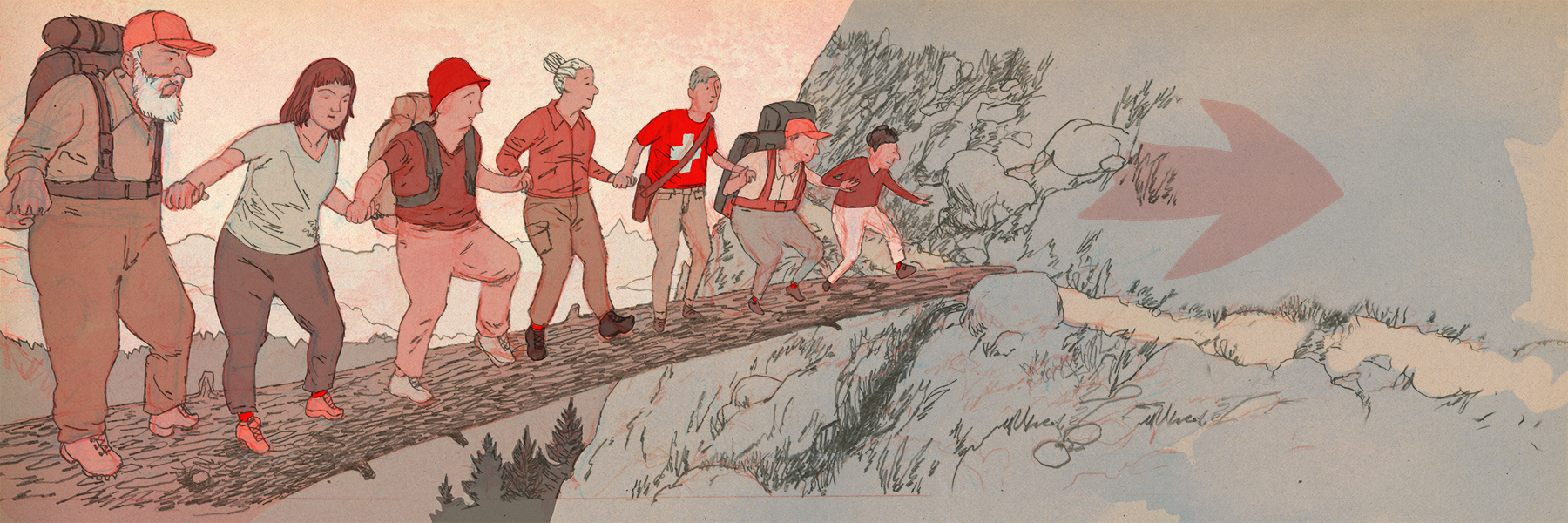
More
Why people in Switzerland trust the state
SWI: But in Switzerland there is also a tendency towards polarisation.
DvZH: Of course – no country is free of this. And where there is polarisation, it probably also runs along specifics like class, income, and education. But I know what the person who cleans in my [apartment] building earns – it’s a wage you can live on. In my building lives the mayor of my town and a person who works as a cashier in the supermarket. That would never happen in South Africa. Of course there are differences – but compared to where I come from, this is a wealthy and equal society.
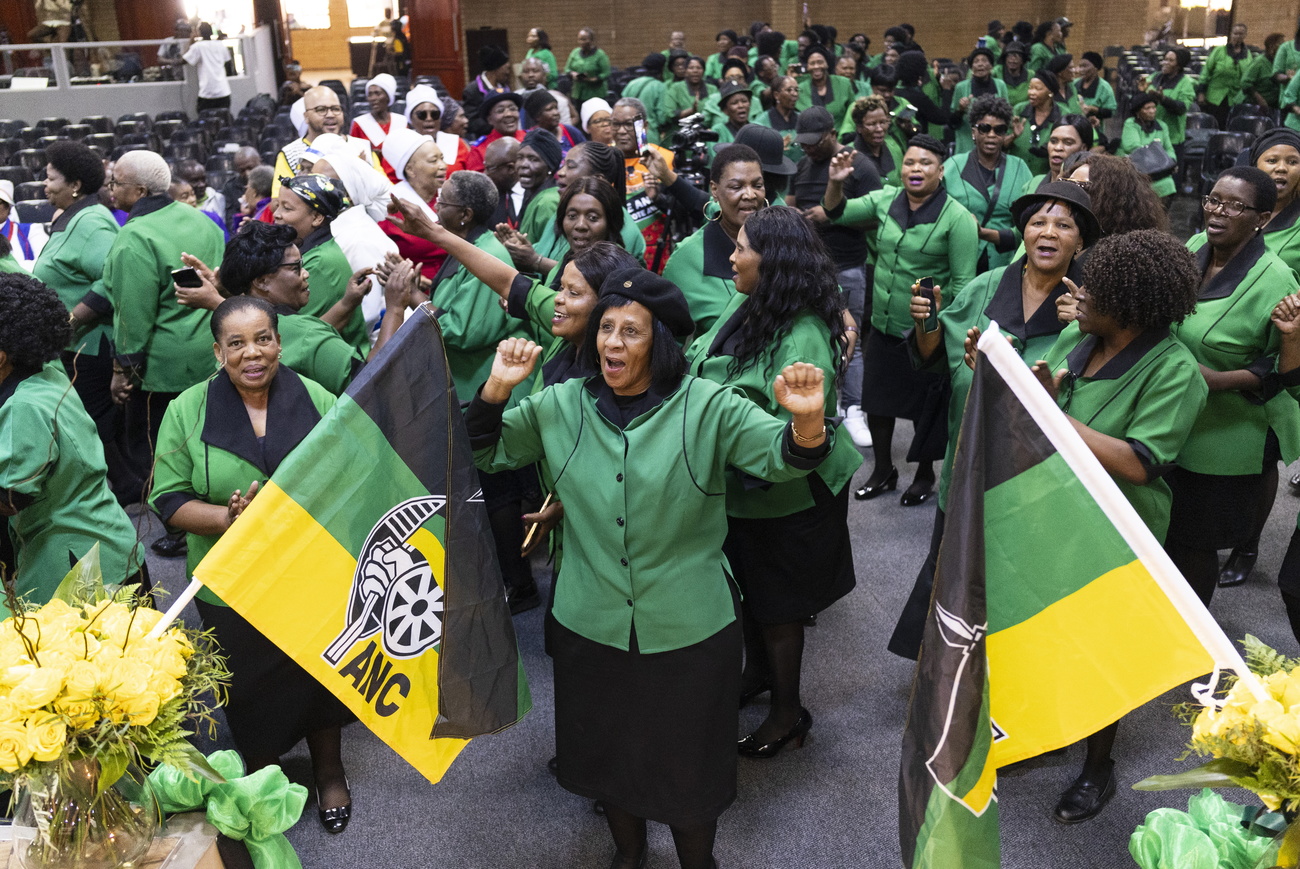
SWI: There is a lot of speculation about what is going to happen in the upcoming election in South Africa. Some people think the ANC could lose its majority for the first time since 1994.
DvZH: Yes, there is both excitement and unease about this. There is the hope that, if the ANC loses its majority and has to enter into coalition, incompetence or corruption in the state will be improved. On the other hand, South Africans worry that coalitions will lead to instability or political deadlock – we often see this happen across the world. There are those who warn that the ANC won’t accept the election results if it loses its majority. I think this is unnecessarily alarmist – the ANC has lost its majority in provincial and local elections in the past and has always accepted that.
Whatever happens, at the national level the ANC will remain the biggest party. Perhaps there will be a coalition government – but the most important thing is that the election result is accepted as legitimate. The shift towards coalition politics in general should be seen as positive. It means that South Africa is moving away from a one-party dominant system.
Edited by David Eugster/gw

In compliance with the JTI standards
More: SWI swissinfo.ch certified by the Journalism Trust Initiative
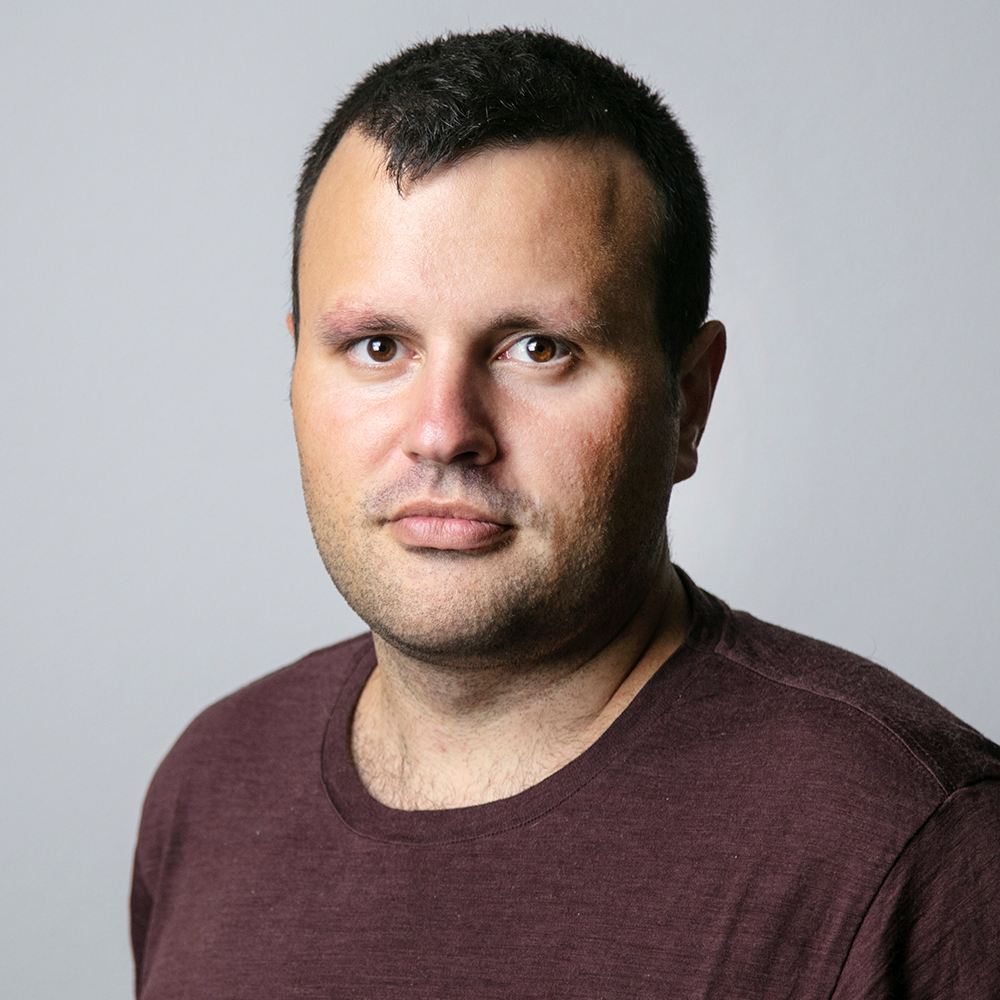
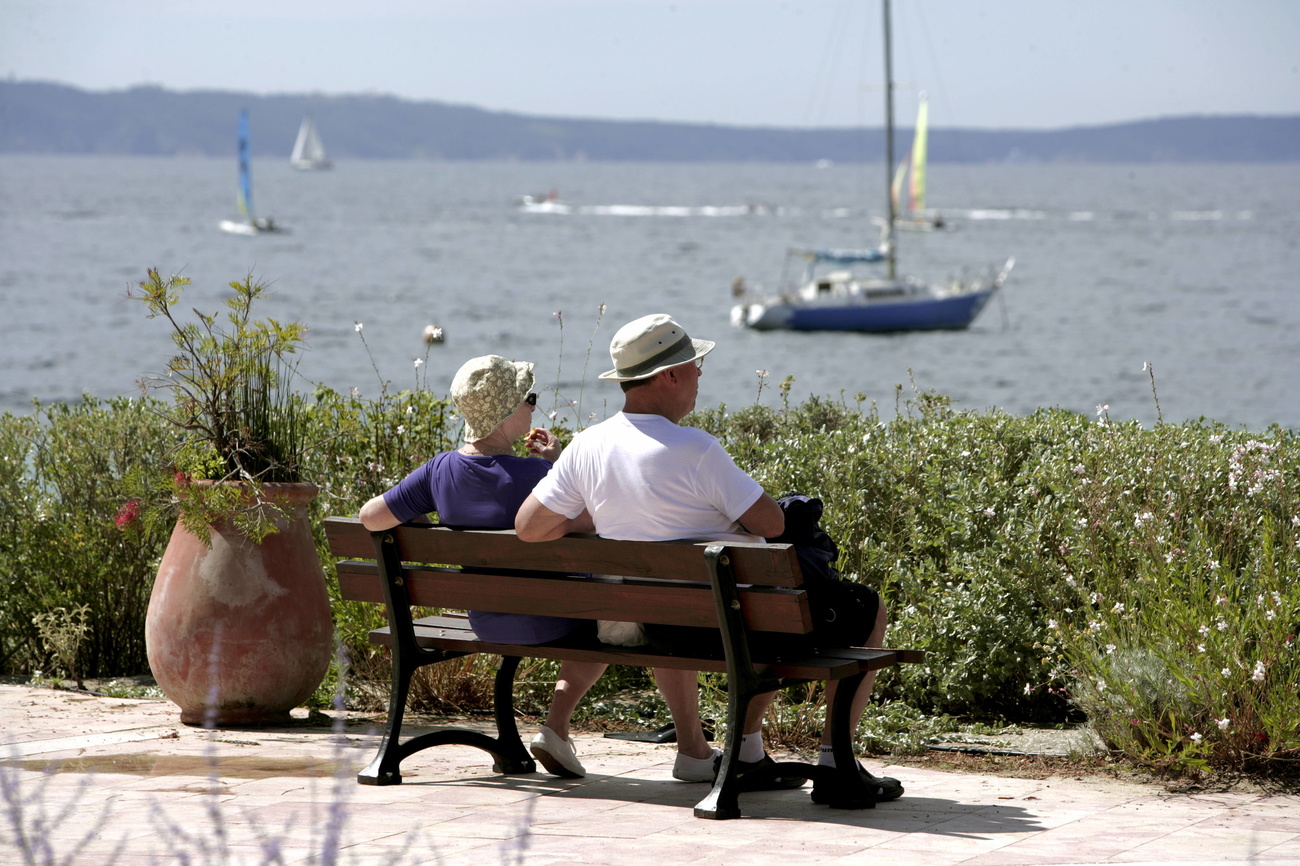

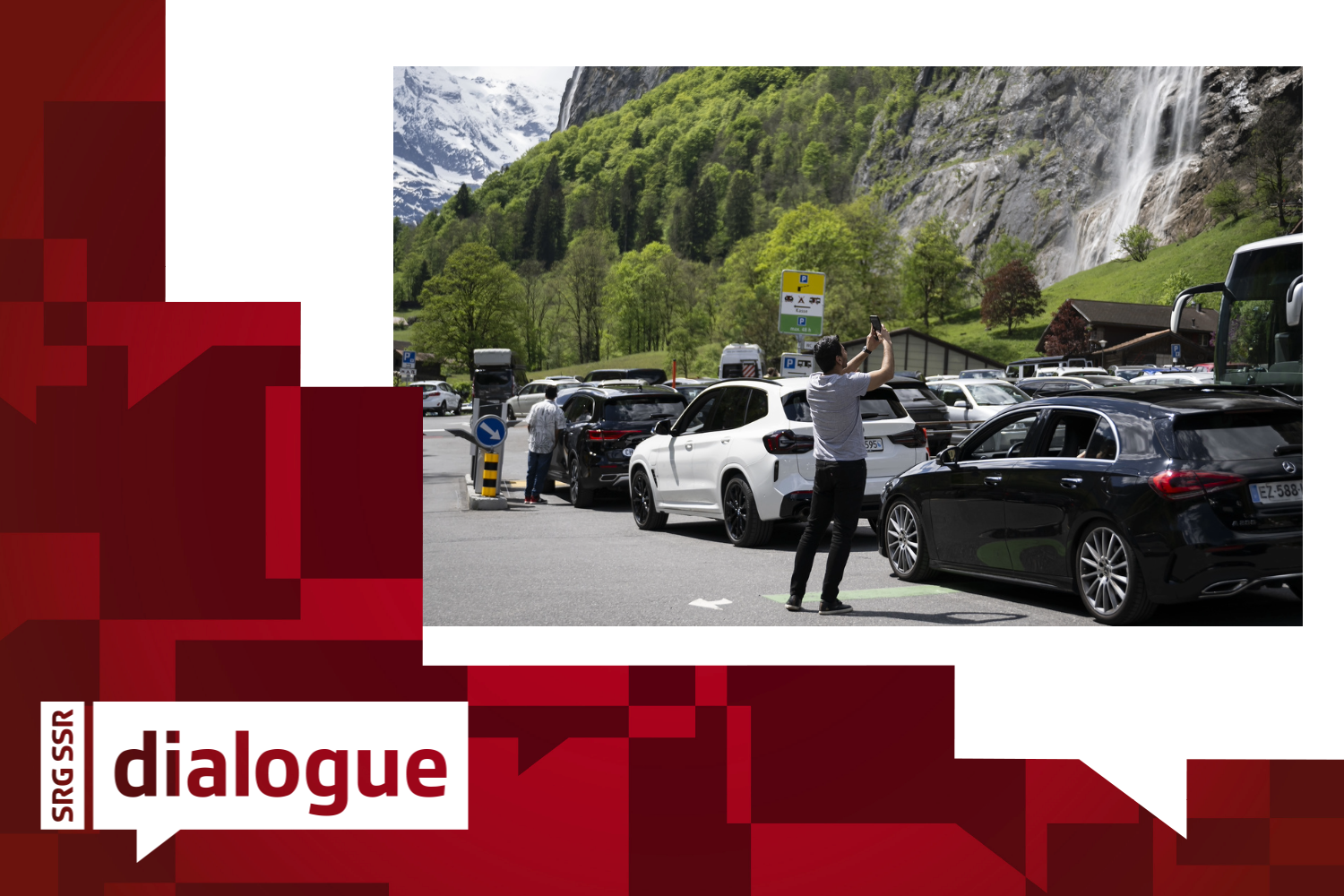
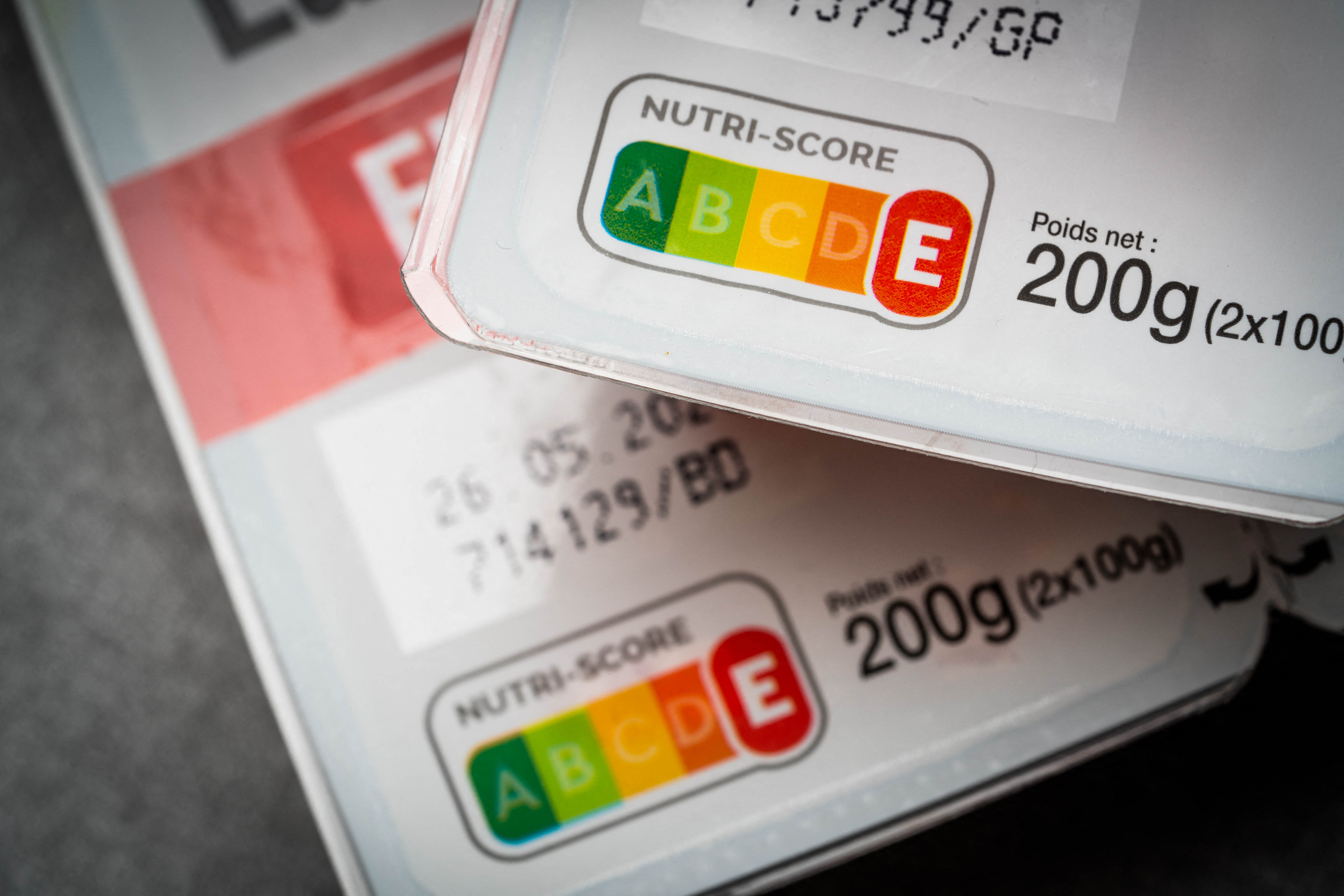


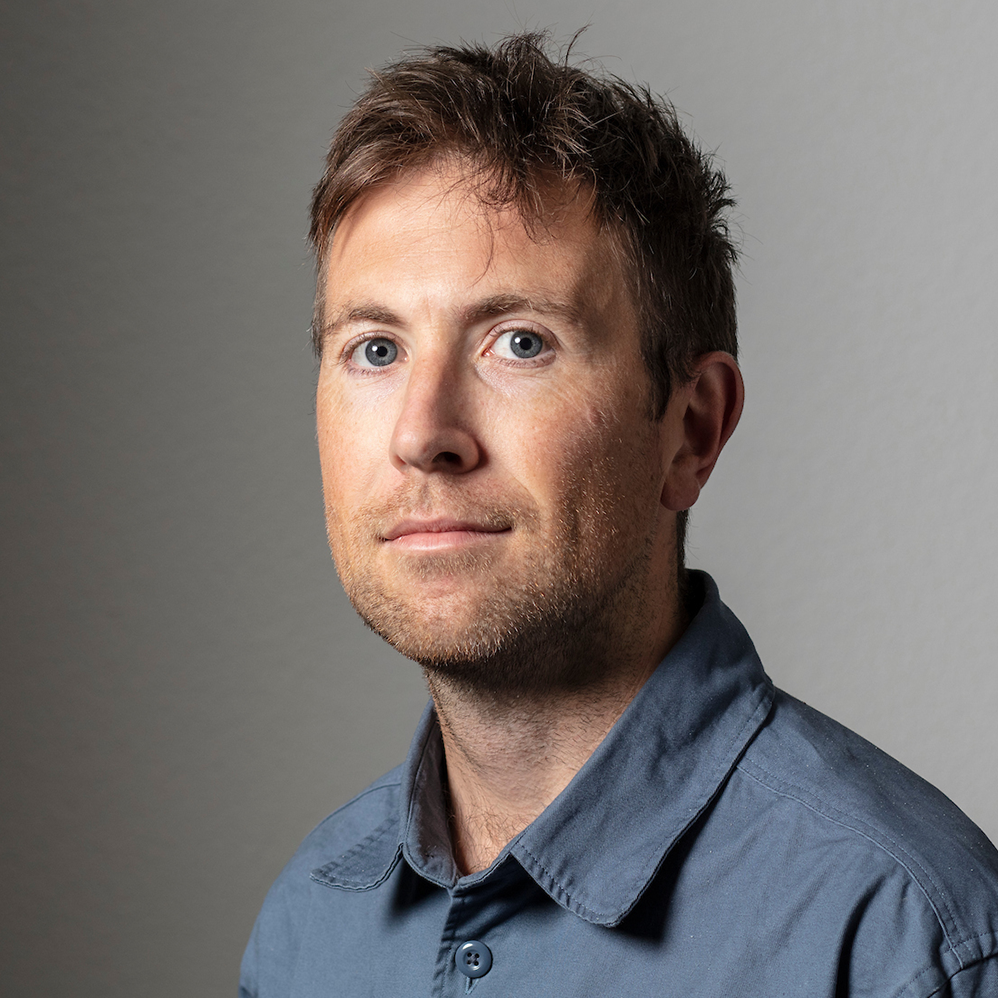
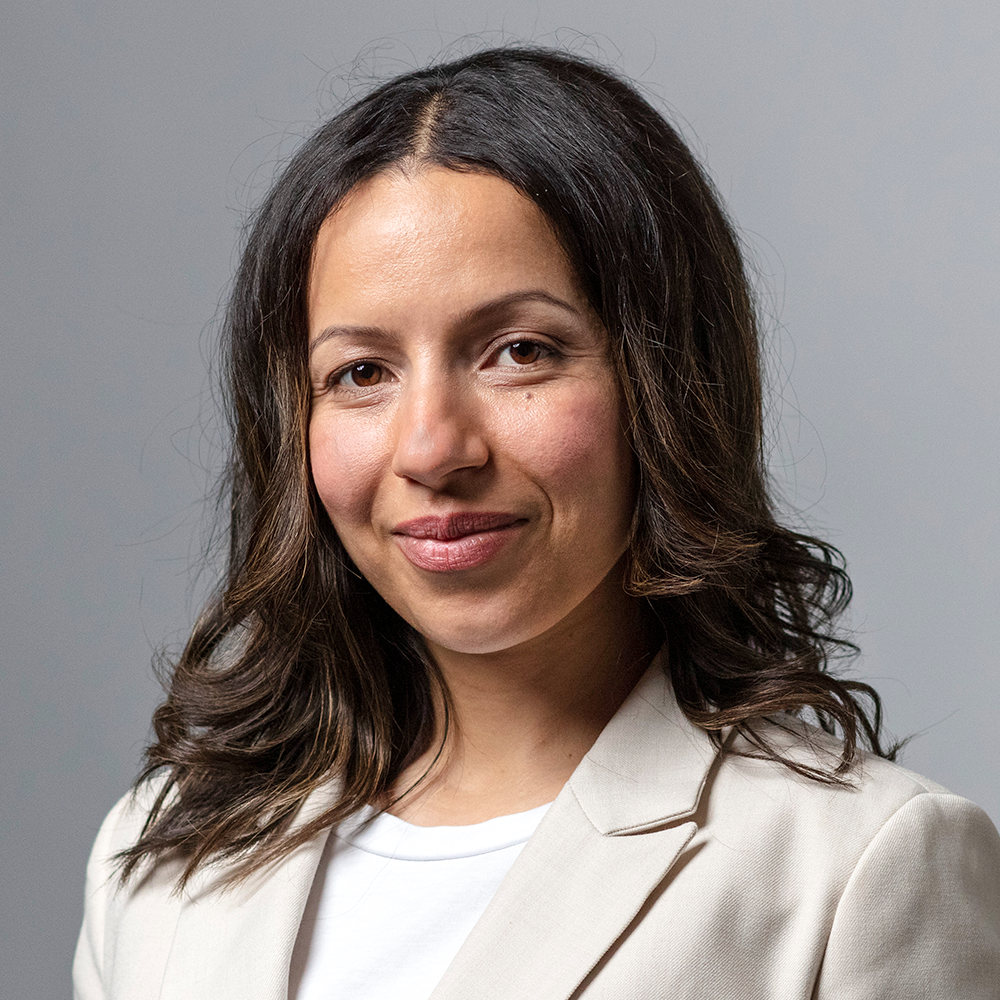
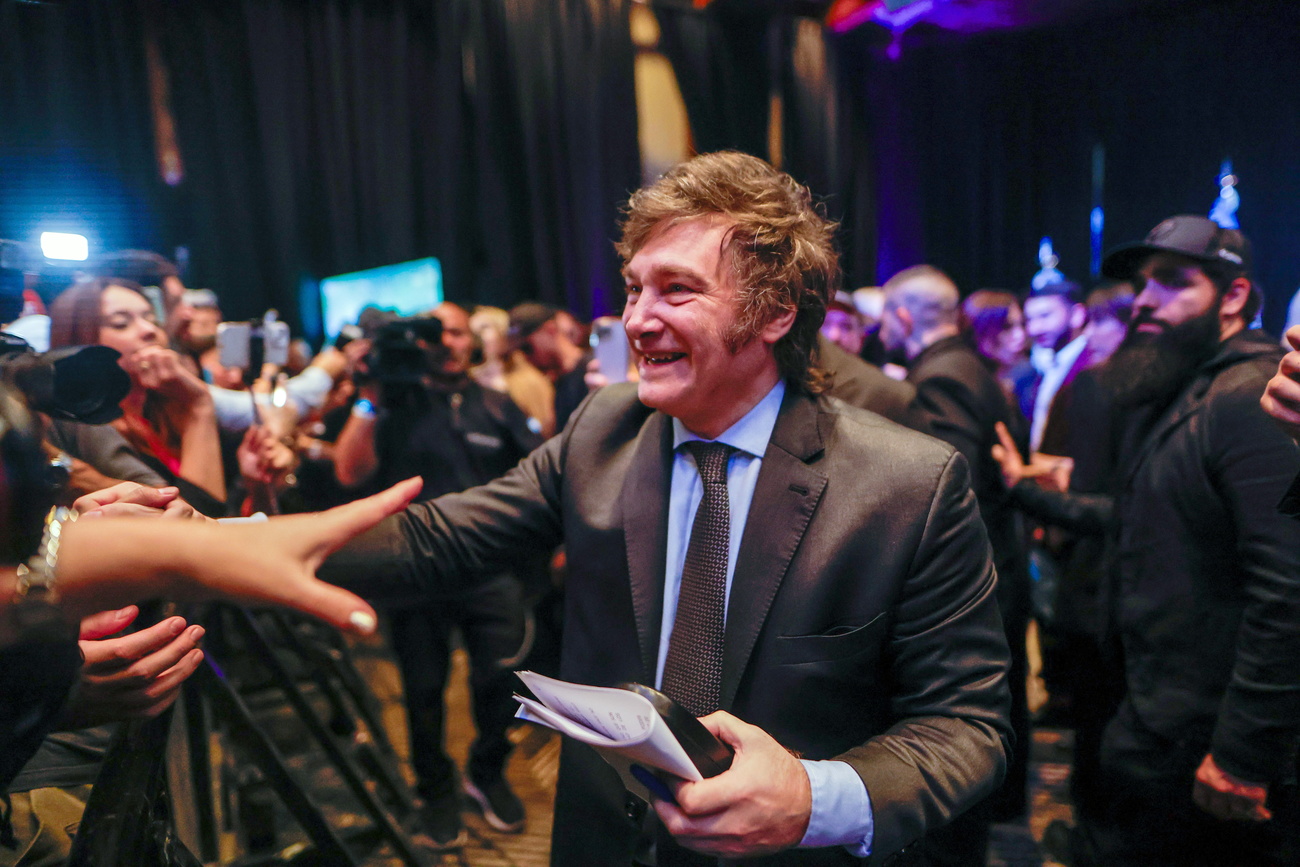
You can find an overview of ongoing debates with our journalists here . Please join us!
If you want to start a conversation about a topic raised in this article or want to report factual errors, email us at english@swissinfo.ch.